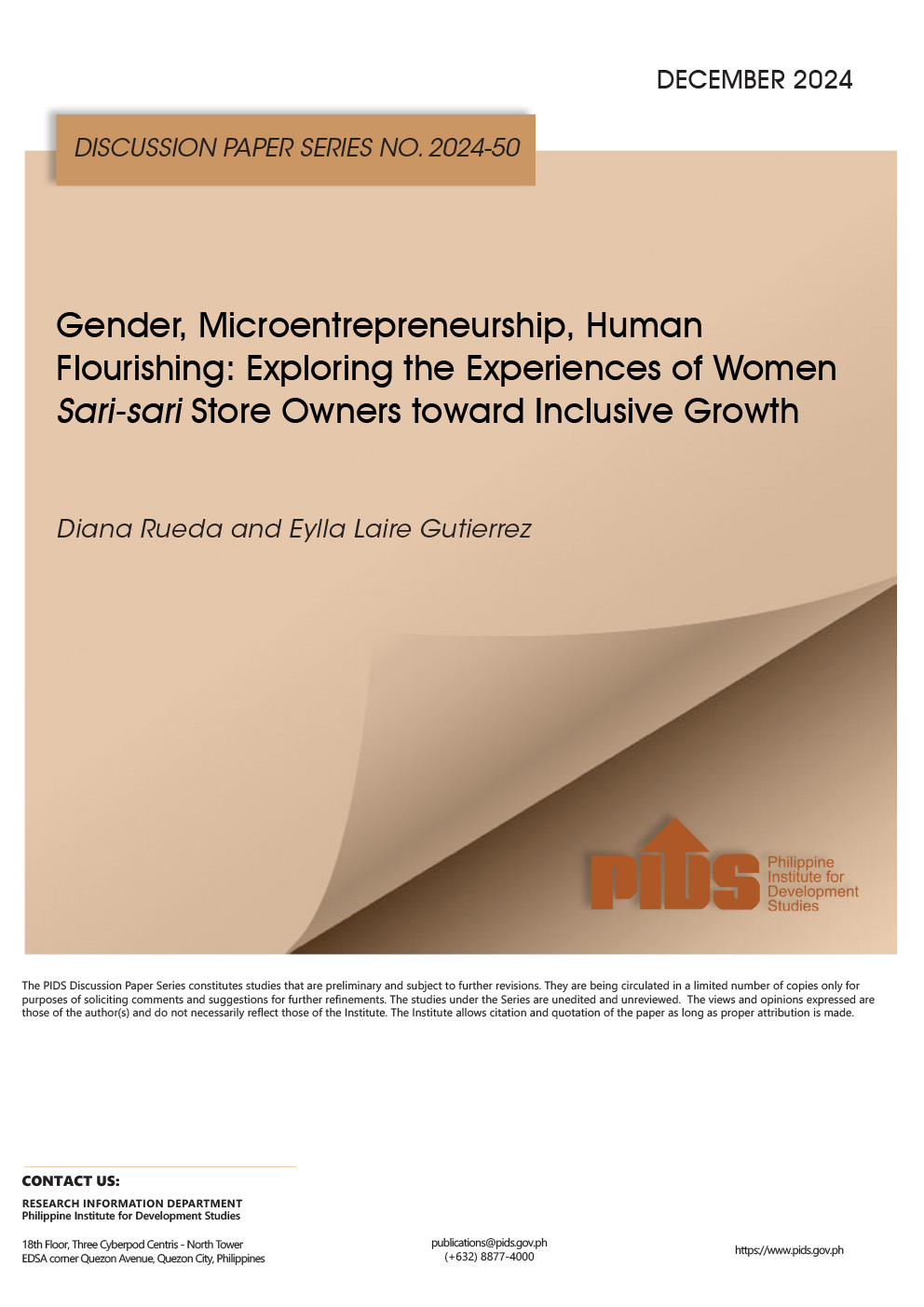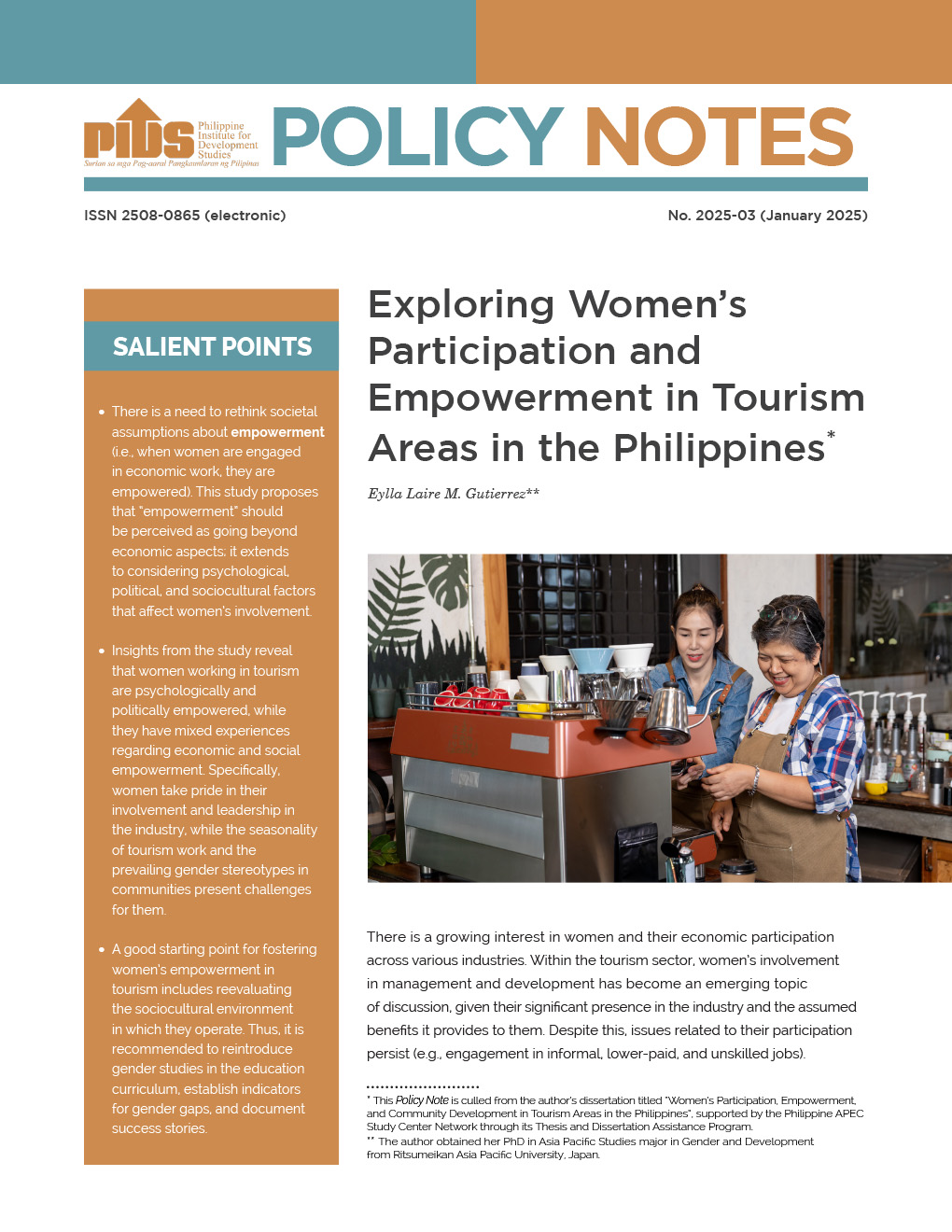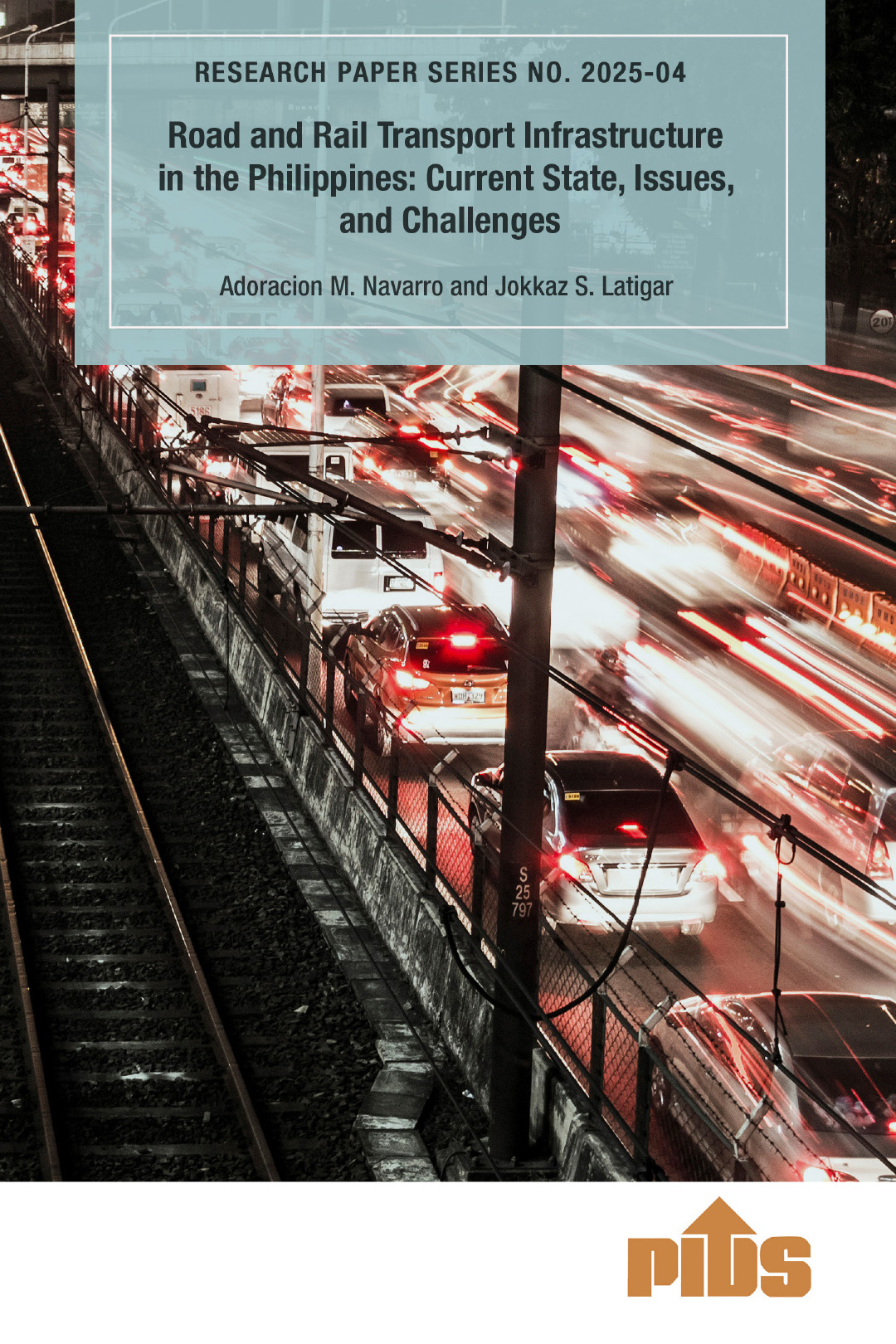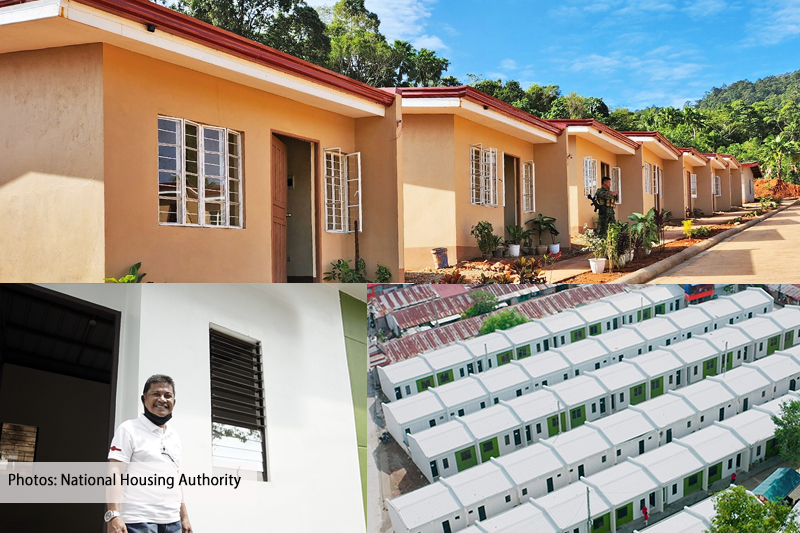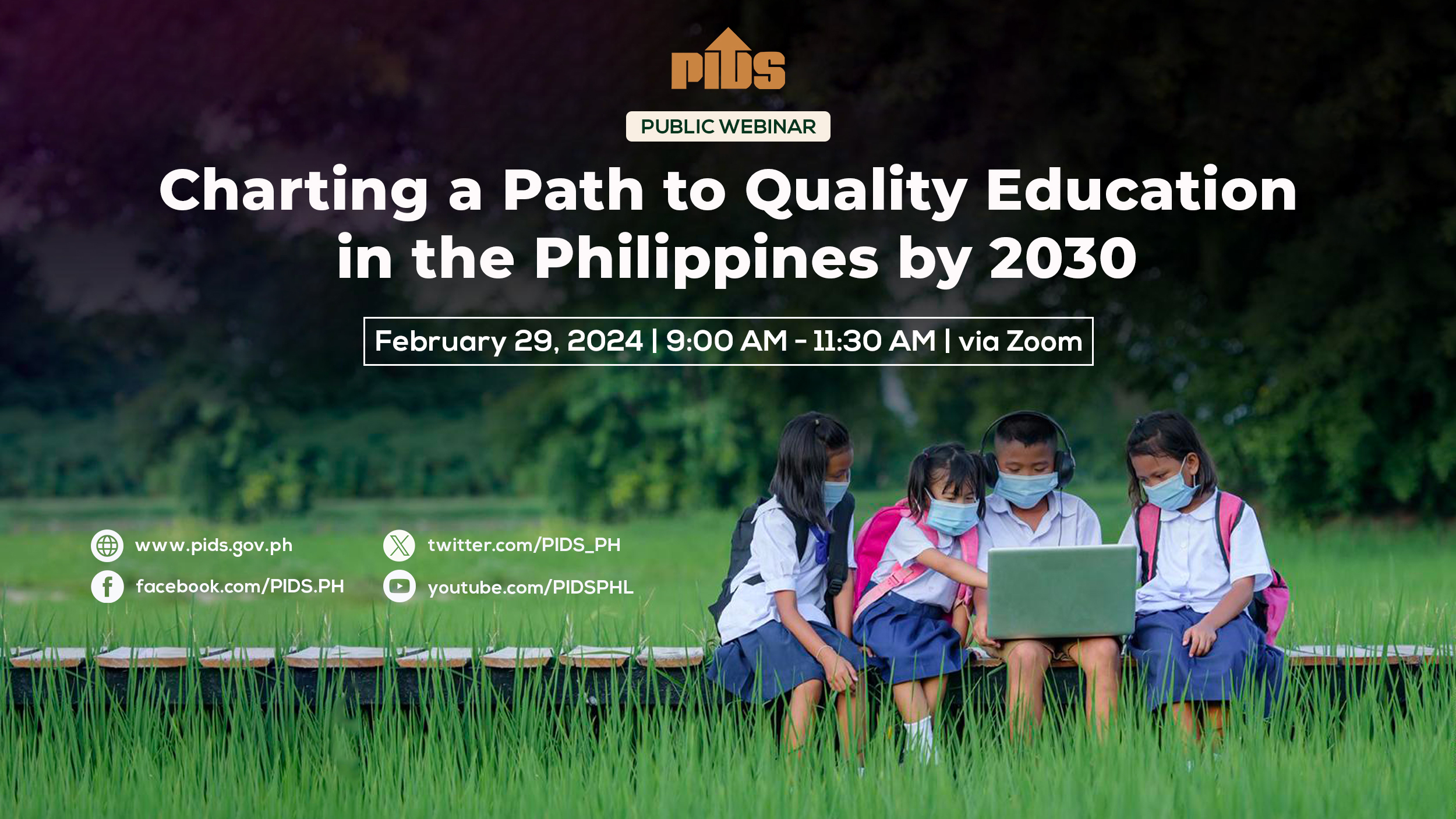The Philippine economy can still manage to sustain its current growth path, or at least expand by six percent, despite the uncertainties brought by the change in administration, analysts said.
With only one week left before the May 9 elections, the candidates vying for the top government post are already in the last leg of their campaigns, as most of them have laid down their plans for the next six years.
However, most analysts seem to say that the Philippines can maintain its current growth trend, regardless of who will lead the country until 2022.
Jose Ramon Albert, senior research fellow of state-funded think tank Philippine Institute for Development Studies said that the current administration has already set the stage by putting a lot of investments in human capital, particularly through the conditional cash transfer program, which has resulted in a declining number of out of school children.
He pointed out that the country’s gross domestic product (GDP) growth rate of 6.3 percent in 2010 to 2014 was the highest five-year average during the past 40 years, while growth was sustained in 2015 at 5.8 percent.
He said that the recent economic growth in the Philippines has been at par with, and even surpassed, those of other countries in the Asia Pacific region.
“The next government will be under severe pressure to come up with mechanisms to make sure that growth is inclusive, and that everyone should be benefitting from this growth,” Albert said.
“We understand that whoever takes charge will steer the ship. But still, even if there are risks, you also have to recognize that we have a very good government bureaucracy that will try its best to still work within the policy priorities,” he added.
Albert pointed out that whoever is in charge will still need an economic team.
“You will need to judge not just whoever wins on his or her capabilities but on the team itself that will support the President. I’m pretty sure that whoever wins will be able to find good people because we have so much human capital everywhere,” he said.
For his part, Benjamin Diokno, UP economist, said that growth of 7 to 8 percent is possible, only if the next President has the vision and the political will to pursue a growth-oriented fiscal policy and is willing to cause the amendment of the restrictive economic provisions in the Constitution on his/her first year.
“The economy is expected to grow at 6 percent during the first half of the next President’s term. For the next half, growth at 7 to 8 percent is possible only if the appropriate reforms and expansionary fiscal policies are adopted during the next President’s first three years,” Diokno said.
The former budget secretary said that the next administration should focus on growth-oriented infrastructure nationwide, agricultural modernization, manufacturing, and tourism.
“(There could be) strong growth if the next President is decisive, focused, and able to assemble competent men and women. Weak growth if it’s business as usual,” Diokno said.
Meanwhile, Cid Terosa, University of Asia and the Pacific economist, said that the next President should establish his or her work on the strong macroeconomic fundamentals of the economy.
“If the next President alters the current upward course of the economy through his/her policies and reforms, we might find ourselves starting from scratch all over again,” Terosa said.
He said that the next President should generate more investments from domestic and foreign investors, create quality jobs, and strengthen the technological, institutional, and human resource foundations of the economy.
“We need somebody who can lead others to keep the economy moving. We need a passionate leader and mover of people and ideas,” Terosa said.
Meanwhile, most international institutions also expect that the economy will grow by 6 percent and up this year and next, despite the change of leadership.
However, the World Bank pointed out that the outcome of the general elections pose some uncertainties.
“While the foundations for more inclusive growth have been put in place, there is still the risk of reversals of hard won gains in securing macroeconomic stability and deepening governance, especially in public spending,” the World Bank said in its Philippine Economic Update.
“A key priority for the new government will be to create more and better jobs through an accelerated structural reform agenda,” it added.
The multilateral bank agency said that trends in recent years point to the beginnings of a more inclusive growth pattern, which needs to be sustained over a longer period before the poor can feel the impact of higher growth and better governance in their daily lives.
“In the past six years, the government has preserved macroeconomic stability, promoted transparency, and directed the growing fiscal space towards pro-poor infrastructure and services,” the World Bank said.
“What is needed now is to consolidate the reforms made and to accelerate the economic reform agenda by moving ahead at full speed,” it added.
The report further said that priority is needed in Mindanao, where decades of conflict and weak “Manila-centric” policies have kept it from reaching its potential.
Meanwhile, a report recently released by think tank GlobalSourcePartners said that market players have seemingly taken the view that the May 9 vote will not derail the country’s reform program nor harm the current growth trajectory, especially if the new administration brings in a competent cabinet team.
“What is at issue is whether the next President will be able to take the economy to a higher growth path by removing supply bottlenecks and constraints to doing business, bringing in more investments that create more local jobs, and raising per capita incomes,” the report said.
“All this depends on the winning candidate’s leadership skills, his/her ability to spend political capital to muster legislative, bureaucratic, and societal support for needed reforms, and his/her deftness in outmaneuvering entrenched interests opposed to reforms. He/she would also need to quickly demonstrate results and establish a track record to build confidence,” it added.//
With only one week left before the May 9 elections, the candidates vying for the top government post are already in the last leg of their campaigns, as most of them have laid down their plans for the next six years.
However, most analysts seem to say that the Philippines can maintain its current growth trend, regardless of who will lead the country until 2022.
Jose Ramon Albert, senior research fellow of state-funded think tank Philippine Institute for Development Studies said that the current administration has already set the stage by putting a lot of investments in human capital, particularly through the conditional cash transfer program, which has resulted in a declining number of out of school children.
He pointed out that the country’s gross domestic product (GDP) growth rate of 6.3 percent in 2010 to 2014 was the highest five-year average during the past 40 years, while growth was sustained in 2015 at 5.8 percent.
He said that the recent economic growth in the Philippines has been at par with, and even surpassed, those of other countries in the Asia Pacific region.
“The next government will be under severe pressure to come up with mechanisms to make sure that growth is inclusive, and that everyone should be benefitting from this growth,” Albert said.
“We understand that whoever takes charge will steer the ship. But still, even if there are risks, you also have to recognize that we have a very good government bureaucracy that will try its best to still work within the policy priorities,” he added.
Albert pointed out that whoever is in charge will still need an economic team.
“You will need to judge not just whoever wins on his or her capabilities but on the team itself that will support the President. I’m pretty sure that whoever wins will be able to find good people because we have so much human capital everywhere,” he said.
For his part, Benjamin Diokno, UP economist, said that growth of 7 to 8 percent is possible, only if the next President has the vision and the political will to pursue a growth-oriented fiscal policy and is willing to cause the amendment of the restrictive economic provisions in the Constitution on his/her first year.
“The economy is expected to grow at 6 percent during the first half of the next President’s term. For the next half, growth at 7 to 8 percent is possible only if the appropriate reforms and expansionary fiscal policies are adopted during the next President’s first three years,” Diokno said.
The former budget secretary said that the next administration should focus on growth-oriented infrastructure nationwide, agricultural modernization, manufacturing, and tourism.
“(There could be) strong growth if the next President is decisive, focused, and able to assemble competent men and women. Weak growth if it’s business as usual,” Diokno said.
Meanwhile, Cid Terosa, University of Asia and the Pacific economist, said that the next President should establish his or her work on the strong macroeconomic fundamentals of the economy.
“If the next President alters the current upward course of the economy through his/her policies and reforms, we might find ourselves starting from scratch all over again,” Terosa said.
He said that the next President should generate more investments from domestic and foreign investors, create quality jobs, and strengthen the technological, institutional, and human resource foundations of the economy.
“We need somebody who can lead others to keep the economy moving. We need a passionate leader and mover of people and ideas,” Terosa said.
Meanwhile, most international institutions also expect that the economy will grow by 6 percent and up this year and next, despite the change of leadership.
However, the World Bank pointed out that the outcome of the general elections pose some uncertainties.
“While the foundations for more inclusive growth have been put in place, there is still the risk of reversals of hard won gains in securing macroeconomic stability and deepening governance, especially in public spending,” the World Bank said in its Philippine Economic Update.
“A key priority for the new government will be to create more and better jobs through an accelerated structural reform agenda,” it added.
The multilateral bank agency said that trends in recent years point to the beginnings of a more inclusive growth pattern, which needs to be sustained over a longer period before the poor can feel the impact of higher growth and better governance in their daily lives.
“In the past six years, the government has preserved macroeconomic stability, promoted transparency, and directed the growing fiscal space towards pro-poor infrastructure and services,” the World Bank said.
“What is needed now is to consolidate the reforms made and to accelerate the economic reform agenda by moving ahead at full speed,” it added.
The report further said that priority is needed in Mindanao, where decades of conflict and weak “Manila-centric” policies have kept it from reaching its potential.
Meanwhile, a report recently released by think tank GlobalSourcePartners said that market players have seemingly taken the view that the May 9 vote will not derail the country’s reform program nor harm the current growth trajectory, especially if the new administration brings in a competent cabinet team.
“What is at issue is whether the next President will be able to take the economy to a higher growth path by removing supply bottlenecks and constraints to doing business, bringing in more investments that create more local jobs, and raising per capita incomes,” the report said.
“All this depends on the winning candidate’s leadership skills, his/her ability to spend political capital to muster legislative, bureaucratic, and societal support for needed reforms, and his/her deftness in outmaneuvering entrenched interests opposed to reforms. He/she would also need to quickly demonstrate results and establish a track record to build confidence,” it added.//

